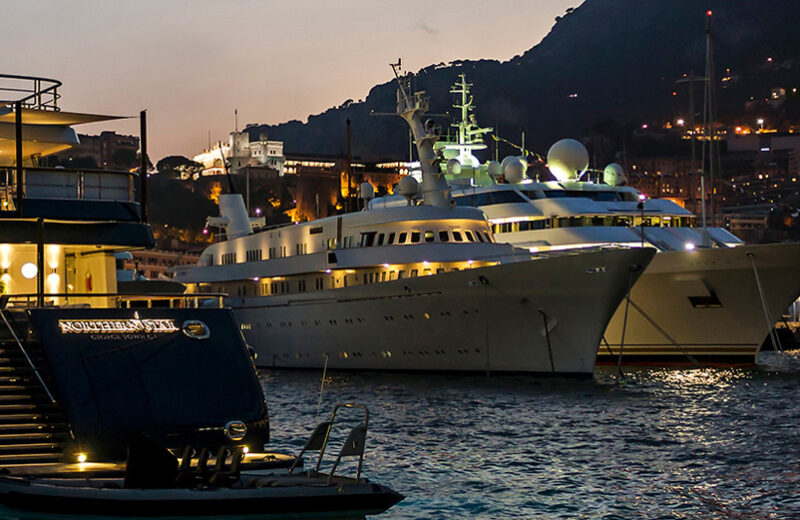New owners keeping lawyers at full tilt

Since mask-wearing and keeping ‘social distance’ became just another part of daily life, yachts have become the go-to getaway for many. Nowhere has this been more prevalent than in the US state of Florida.
However, an influx of new owners – often inexperienced in the market – has led to a rise in litigation in all forms and seen US Coast Guard activity rise dramatically over the past year.
The bigger desire for yachting has increased the legal needs for the recreational yachting community and lawyers have been working flat out to keep up with demand. In the US, ownership and use of yachts are subject to wide ranging federal and state restrictions. Without an experienced maritime lawyer, a fresh-faced owner can easily be vulnerable to the risks of boat ownership.
The US Coast Guard says search and rescues have increased by 92% in the past fiscal year and it expects a further 50% rise for 2021. The coast guard has made a point of targeting unlicensed charters. The current trend shows a 100% increase in Coast Guard intercession for unlicensed charters with potential fines in excess of $94,000 per day.
New entrants can be more demanding
Bob Allen, founder, Robert Allen Law, based in Fort Lauderdale, Florida has been in the thick of the action. Allen tells Superyacht Investor (SYI): “Yes, I have been seeing a rise in claims. New entrants into the market are, in some ways, more demanding in terms of the customary balances between buyer and seller or buyer and builder. And this can lead to tension and its usual sequela when disagreements arise.”
Robb Maass, partner, Alley Maass Rogers & Lindsay, says he has dealt with an increase in hull claims rather than liability. “First-time owners, especially those who manage their boats themselves, sometimes don’t fully appreciate the risks that they’re undertaking with certain activities, like towing tenders, leading to more claims,” Maass tells SYI.
To cope with the amount of work, Allen has expanded the firm. “We haven’t rushed to hire lawyers and because getting the right fit is key, but we do have someone starting in August and another in October.”
It’s been a similar story at Maass’ practice too. “We’ve taken on two new lawyers, but have dealt with the increase principally by working longer hours,” says Maass.
Shipyard workload ‘is amazing’
In southern Europe the reality has been different, but work has remained flat out. Miguel Angel Serra, partner with Spanish law firm Albors Galiano Portales tells SYI: “I’ve been involved many new build deliveries this year, it is really amazing the workload of shipyards during this period of crisis. But, honestly, I’ve not seen an increase in litigation.” What Serra has seen is an increase of stress and last-minute discussions on extra equipment and cost variances due to an overload of pressure in demand for slots.
“What indeed is new is that throughout this crisis there has been a considerable increase in demand for yachts, especially large yachts, which is different to what happened in the financial crisis of 2008,” said Serra.
If you wish to order a yacht now, you’ll have to wait for a slot considerably longer than before in the main European shipyards – up to three years one broker told SYI. “Maybe it’s a nonsense, but I would not rule out a speculative slot market in the near future …. who knows?” added Serra.
James Jaffa, partner, Jaffa & Co told SYI: “The rise of Covid-19 has been the main instigator of increased litigation over the past two years, and will continue to be for the foreseeable.
“The superyacht market is experiencing a boom period in sales, which exceeds anything in recent memory. The biggest issue seems to be sourcing quality inventory to sell, a common problem seems to be that willing buyers procrastinate too long. Historically, buyers would assume that a broker saying ‘I have another willing buyer waiting in the wings’ was simply a sales tactic. Since late 2020, it has proved to be true,” said Jaffa.
Different category of buyer
The biggest problem Jaffa’s business faces is a lack of capacity, he said. Jaffa & Co is actively having to pick and choose which clients to take on, because it cannot cope with demand, despite having one of the largest teams in the superyacht and business aviation sectors.
Bargate Murray, CEO, Quentin Bargate told SYI he is seeing some conflict between old and new. “There is a different kind of category of person [buying a yacht], and that has led, in a couple of cases, to disputes. New clients maybe aren’t used to the idea of ownership, or they feel they have been mis-sold on the asset.”
Another area which has created more work following of the pandemic is crew employment agreements. Travel restrictions have made the logistics of moving crew around the world much more challenging. “We actually spend a lot of time sitting down and giving briefs on what you need to do on a day-to-day, week-to-week basis because the situation is constantly changing.”
While the workloads may vary in their description, their size and volume do not. The pandemic has created a demand for yachts few predicted and all that means lawyers stay at full tilt – and happy.
Subscribe to our free newsletter
For more opinions from Superyacht Investor, subscribe to our email newsletter.

